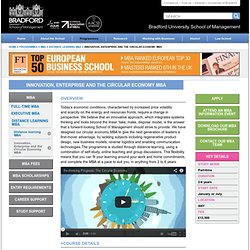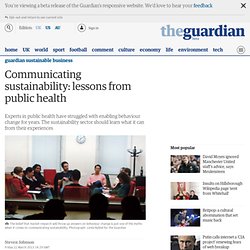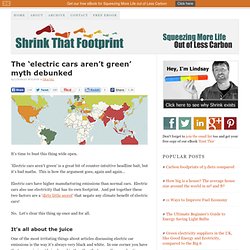

Rocky Rex's Science Stuff. Innovation, Enterprise and the Circular Economy MBA - Bradford University School of Management. All students start their studies by taking the ‘Circular Economy – Core Principles and Concepts’ module.

This module provides a firm grounding on the key issues associated with the Circular Economy. Following on from this students are expected to take two subjects (modules) every three months. Each module contains nine study units. Students typically progress by studying one unit from each module per week. This equates to approximately 14-16 hours of study per week. If work or family life is particularly busy then you can even suspend your studies and restart at a later date. What you will study The Bradford Learning Experience Each module has been designed so that your understanding and knowledge is developed through using a variety of materials from textbooks and academic journal papers through to video clips, podcasts, on line discussions and live on line tutorials.
Printed Materials Tutorial Groups The Virtual Learning Environment Bradford School of Management Library Assessment. Climate change. Climate Change Kills 400,000 a Year, New Report Reveals. Growing up in the Jewish community that was attacked Sunday means I can’t pretend the alleged murderer was just some hick.

This was terrorism. OVERLAND PARK, Kansas — I was in the car, leaving a movie theater after seeing Captain America: The Winter Soldier, when a friend called to tell me that shots had been fired at the Jewish Community Center. I knew this was different from other mass shootings. I knew this was not a “random act” of violence but a targeted killing—and that my own seemingly safe community was the target. Social cost of CO2 $100/tonne. Timeline of Climate Modeling by Steve Easterbrook on Prezi.
Carbon Dioxide Calculator. The Resurgence Calculator: came first in an independent survey of carbon calculators on-lineis widely recognised as the most user-friendly and accurate on-line carbon calculatoris often the single calculator referred to in articles on carbon footprinting You can use the full calculator below to: Easily and accurately calculate your carbon footprintSee which areas of your lifestyle allow the easiest CO2 savingsMonitor your CO2 emissions from year to yearEnjoy the feel good factor of knowing how much CO2 you have saved This is the accurate calculator which requires your domestic energy bills and MOT certificate.

If you do not have access to these, select the quick calculator. More information on using this carbon calculator What we are going to do is use your domestic energy bills, car mileage, train, ship and air travel and some lifestyle questions to calculate your carbon footprint. N.B. Travelfooprint - Method. The Travelfootprint tool assesses the impacts of the main modes of passenger travel in the UK.

As many comparative studies have done before, the analysis includes an assessment of the environmental impacts associated with the fuel cycle (primary production, extraction, transportation, refining, and vehicle operation) for each of the modes includes in the tool. Unlike previous UK studies, the analysis also assesses the impacts associated with the vehicle cycle (vehicle manufacture, assembly and disposal). Although the environmental impacts of fuel and vehicle cycles include a wide range of resource, pollutant and land-use issues, the analysis focuses exclusively on quantifying the extent and impacts of life cycle air-borne emissions arising from the fuel and vehicle cycles.
The air emissions assessed include the regulated emissions: carbon monoxide, oxides of nitrogen, hydrocarbons and particulates. Analysis of travel modes Main research references Daniels E.J., J.A. Funazaki A., K. Communicating sustainability: lessons from public health. Consumer behaviour change is the challenge of our time.

As governments and brands are beginning to realise, upstream improvements are relatively easy to make compared with the herculean task of shifting consumer behaviours downstream. While the sustainability community is just beginning to get to grips with the gravity of this challenge, our colleagues in public health have been wrestling with it for decades. Great progress has been made, but hard lessons have been learned – costly, time-consuming lessons that we can all learn from. People need more information No they don't. Information is necessary for change, but is not sufficient. We need to inspire people No we don't. One off, tactical interventions may trigger temporary, symbolic behaviours – give up X for a day; turning off Y for an hour etc – but sustainable change requires long-term strategic approaches based on robust behavioural theories and models of change. Attitudes drive behaviours. The ‘electric cars aren’t green’ myth debunked. It’s time to bust this thing wide open.

‘Electric cars aren’t green’ is a great bit of counter-intuitive headline bait, but it’s bad maths. This is how the argument goes, again and again… Electric cars have higher manufacturing emissions than normal cars. Electric cars also use electricity that has its own footprint. And put together these two factors are a ‘dirty little secret‘ that negate any climate benefit of electric cars! No. It’s all about the juice One of the most irritating things about articles discussing electric car emissions is the way it’s always very black and white. But as ever, real life comes in shades of grey.